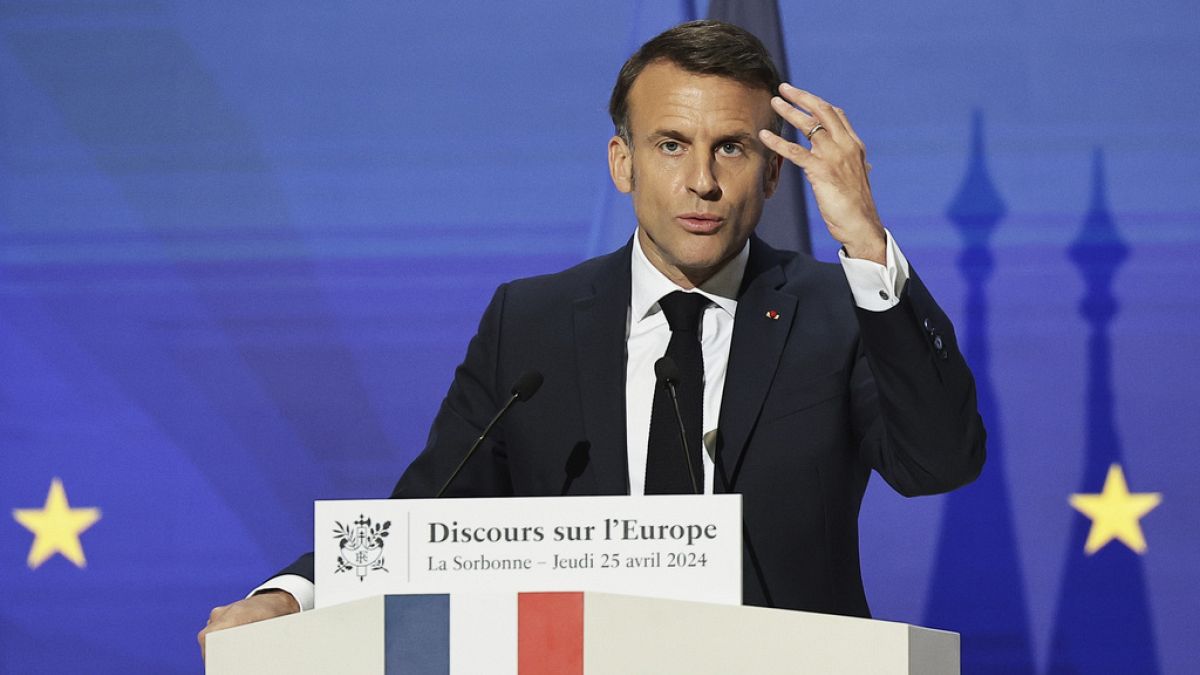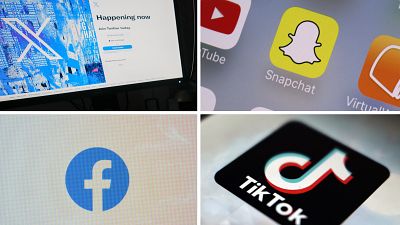EU data regulations currently state that teenagers must be 16 to have their data processed but member states can decide to lower the age limit.
French President Emmanuel Macron said in a speech this week that he would like to see Europe create a “digital majority” of 15, meaning that before that age, parents would control access to the “digital space”.
France enacted a law in July 2023 that requires online social network service providers operating in France to refuse children under 15 unless expressly authorised by one of their parents or guardians.
Failure to comply with this obligation could result in the social platform being fined up to one per cent of its worldwide sales.
“Does anyone send their child into the jungle at 5, 10 or 12?,” Macron said in his speech on Thursday at the Sorbonne.
“Today, for several hours a day, we open the door to the jungle,” he added, referencing cyberstalking, pornographic content, pedo-criminality and the lack of moderation on digital platforms.
As children and teenagers access technology at a younger age, there have been concerns regarding the websites and platforms they can access. Many social media platforms require children to be at least 13 to create an account.
European data regulations currently require that a teenager must be 16 to have their personal data processed unless their parent or guardian provides their consent but this age can be lowered to 13 by EU states.
Thomas Rohmer, president and founder of the French Observatory for Parenthood and Digital Education told Euronews Next, however, that some 19 per cent of children aged between 7 and 10 have said they use TikTok, so changing this trend might prove tricky.
But Rohmer says he doesn’t “believe in restrictions but more in regulation and education,” pointing out that behind the internet and social media are humans so when there are issues such as harassment, people are behind it.
Difficult implementation
Several countries have pushed for more controlled access to certain websites and platforms, for example, pornographic sites, when it comes to underage users.
However, the implementation of such measures presents important challenges.
One of the possible options included websites requesting an ID from users but France’s data authority (Cnil) vetoed this solution due to the privacy risk. Facial analysis was also vetoed for the same reasons.
Another solution involves using a third-party verifier during an age verification process.
“This technical challenge hasn’t been resolved,” Rohmer said. For the moment, no implementing decree of the French law has been issued.
“There’s also the question of what we are supposed to do when it comes to children and teenagers who already have a profile on social media,” he added.
As the issue hit a dead-end in France, it seems unlikely that additional digital age restrictions will be implemented at a European scale anytime soon.
“Even if we find a technical solution. You have to remember that you can't coerce users. If a solution is overwhelmingly rejected by users, there is a risk that they will turn away from the platforms imposing it and move on to others,” Rohmer concluded.



